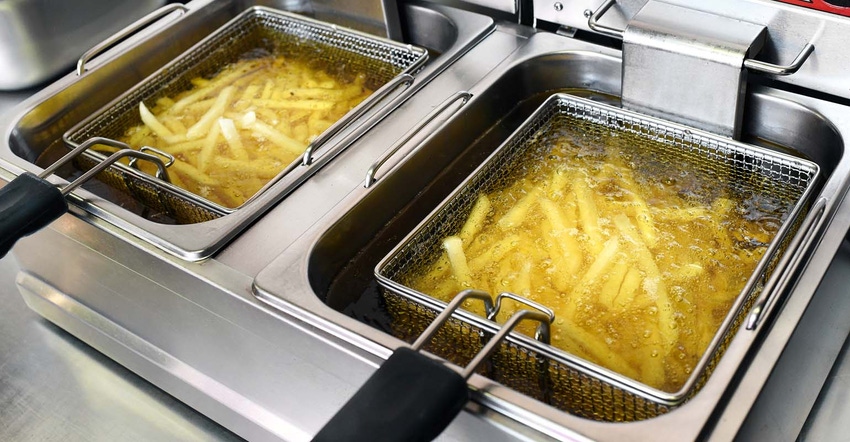July 20, 2018

UniPro Foodservice Inc. and Corteva Agriscience, Agriculture Division of DowDuPont, have introduced UniPro’s new, high-performance soybean oil known as Versa Premier High Oleic Soybean Frying Oil.
“Our company is proud to offer the Versa Premier High Oleic Soybean Frying Oil because it offers superior stability under high temperatures, which improves fry life and reduces polymer buildup on cooking equipment,” said Bob Stewart, UniPro Chief Executive Officer. “This product will provide our cooperative members with a high-performance cooking oil with a healthy oil profile for consumers.”
Plenish high oleic soybeans were developed by Pioneer to bring food companies and consumers a cooking oil with improved stability, a healthy oil profile and to provide new markets for soybean farmers. Grown under contract by U.S. soybean growers for a premium, the end-user and processor demand for the beans has been expanding annually.
“Pioneer is glad to see UniPro launch the Versa Premier High Oleic Soybean Frying Oil to its large member network, which will provide broader distribution of Plenish soybean oil,” said David Dzisiak, North America Commercial Leader, Grains & Oils, Corteva Agriscience, Agriculture Division of DowDuPont. “It’s because of these new products that the market for Plenish high oleic soybeans continues to expand, which creates even more opportunities for soybean growers in the 13 states where Plenish soybeans are grown.”
Versa Premier High Oleic Soybean Frying Oil will be available to UniPro’s 400 member-owners who operate 850+ distribution locations in the U.S.
Plenish high oleic soybean oil is 20% lower in saturated fats than commodity soybean oil, contains approximately 75% heart-healthy monounsaturated fat and has zero trans fats per serving.
Demand for standard U.S. soybean oil in the food industry has decreased more than 20% since 2002, when the Food & Drug Administration announced a mandate to label trans fats. At that time, about 50% of U.S. soybean oil was partially hydrogenated to form a more stable product, but this process created trans fats. Since then, restaurants and food service operations have switched to alternative oil products to replace partially hydrogenated soybean oil. In 2018, the FDA intends to eliminate the Generally Regarded As Safe status of trans fats, thereby eliminating the use of partially hydrogenated soybean oil in food products.
Source: DowDuPont
You May Also Like




